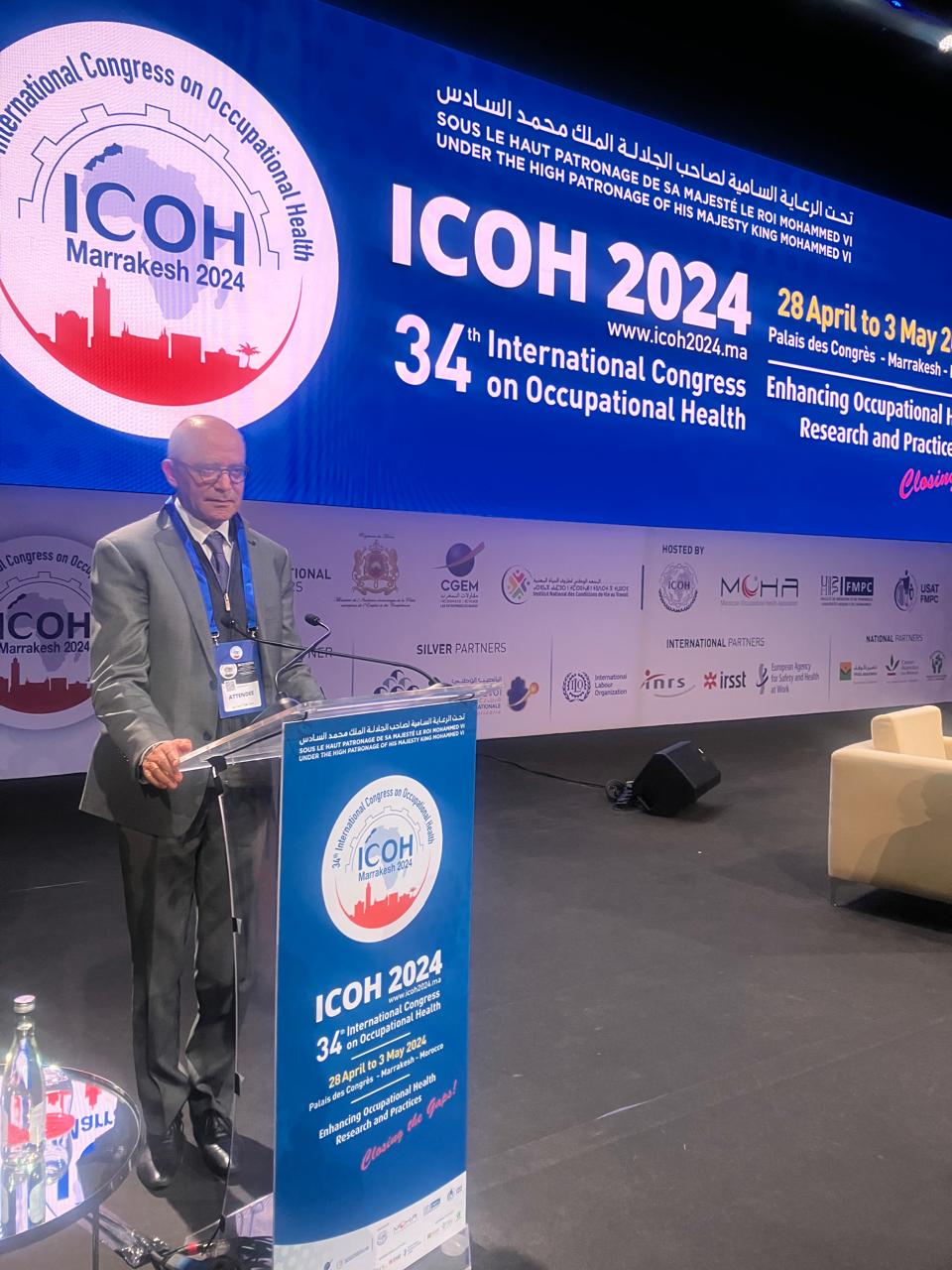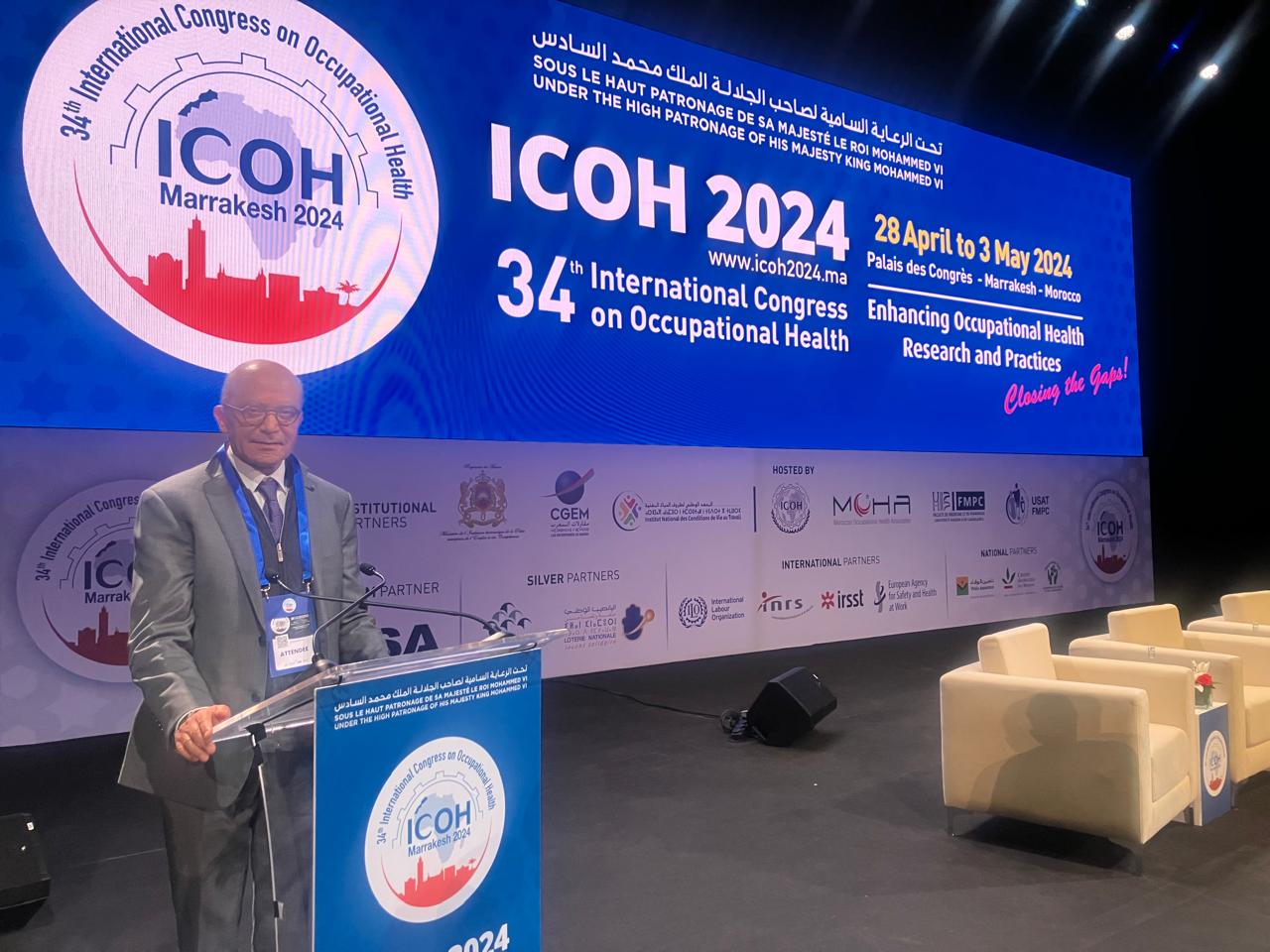
34th ICOH International Congress on Occupational Health
Pr. Ali Benmakhlouf
Center for African Studies (CAS)
April 29th, 2024
Ethical issues on global health
The lecture tried to give some hints on the need for a global health, mainly from the point of view of African countries.
Although Global health is acknowledged as one single health, it is not sufficiently defended, nor is sufficiently implied in public reasoning, let alone in political decisions. “This notion of global health corresponds to the realization that any health event occurring on the other side of the world now concerns everyone” (An interview of Dominique Kerouedan, in « Sciences au Sud », N°68, January, February, March, 2013). It refers more generally to “prevention, vaccination, access to water, sanitation, hygiene education, family planning, primary care, reducing the shortage of caregivers, access to medicines, availability of health information” (Idem).
“Global” is not just a spatial concept, signifying the transition from epidemic to pandemic. The concept of “global health” conceals heterogeneous realities. Three factors are involved: 1) the disease, 2) the social perception to which it gives rise, and 3) the medical response (treatment, vaccination, etc.). Didier Fassin suggests we speak of “interconnection” rather than “extension” (Médecine/sciences, Med Sci (Paris), Volume 31, Number 5, May 2015).
It is difficult to separate global health from health inequalities and inequalities of access to prevention. In Africa, there’s a lack of strategy for early detection of chronic diseases such as infectious diseases, as well as a lack of studies of incidence and prevalence country by country. We cannot neglect parasitic diseases and chronic non-communicable diseases, notably diabetes and cancer and being focused only on infectious diseases that lead to epidemics.





